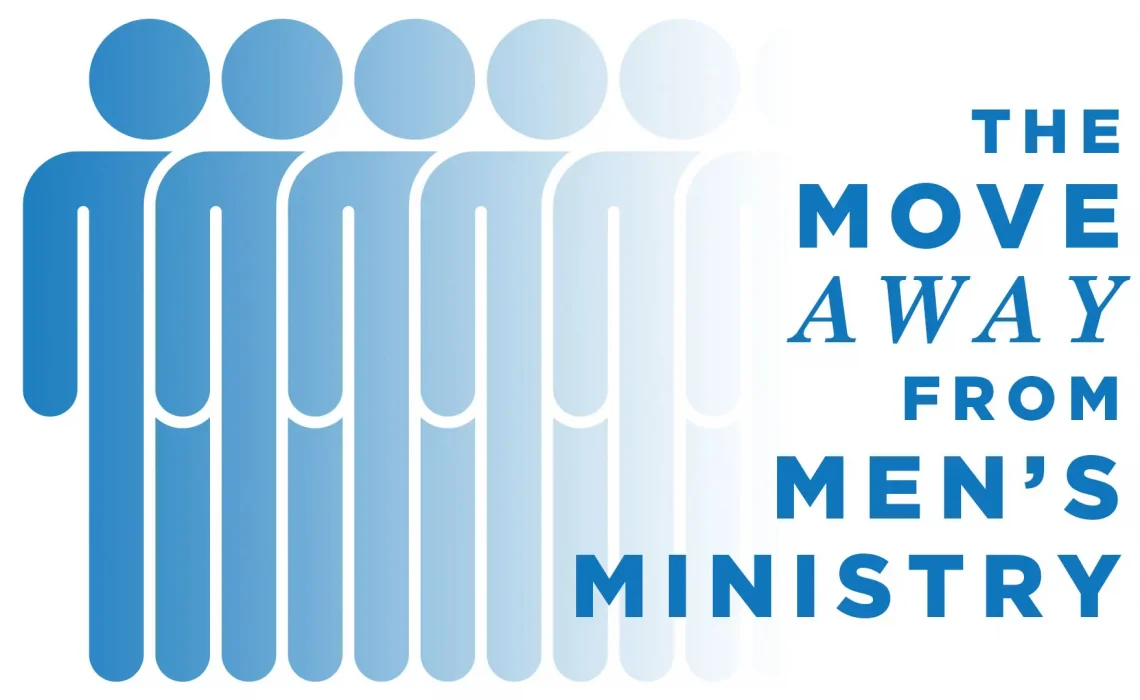My mouth was dry. My heart pounded. Although it was many years ago, I remember it vividly.
I was sitting in a room at church on a Tuesday night with a half dozen men, a few weeks into a men’s small group, half-listening to a book discussion. But my insides were twisting as I knew what I needed to say.
“Guys,” I interrupted, suddenly. “I can’t do this anymore. I sit around acting like everything’s okay, but I’m not okay. My marriage is falling apart, and I don’t know what to do about it. I need this group to get real, right now.”
Wide eyes and stunned silence greeted me.
“Wow,” said the leader quietly. And then, “So let’s hear about it.” With a sigh, I proceeded to spill my guts about our bad communication, my anger, her withdrawal, and a few other things we were both frustrated with each other about.
Finally, I came up for air and looked around. “Sorry. I just needed to tell someone. I didn’t mean to freak anyone out.” I was sure I was the only one who didn’t have it together.
And then a funny thing happened. Over the rest of that meeting and the next few after that, almost every guy shared a deep frustration, struggle, sin, or fear in his life.
Prior to the men’s small group, we’d all had no one to talk to about it—until then.
A “Both-And” Approach to Ministry
In our work with churches, Man in the Mirror has noticed a trend over the last several years. We are seeing churches eliminate separate men’s and women’s ministry opportunities to focus exclusively on couples or co-ed activities.
We are big proponents of co-ed ministry. In fact, if a married man has kids, he may only have time to be in one small group, for example. We will often encourage him to choose a couples’ small group. After all, his marriage is at the crux of most of his life—he wants to provide for his family, be a good dad and husband, lead his wife toward Christ, etc.
But after more than 30 years of working with thousands of churches, we believe that a specific, focused ministry to men that provides guys with the opportunity to meet together without the women of the church is a great thing for the men, for marriages, for families, and for the body. (And the same is true for women’s ministry opportunities!)
Jesus ministered to both men and to women. He had community with both men and women. There were the women who supported him financially (Luke 8:1-3), for example, and the women who came to the tomb together to anoint Jesus’ body (Mark 16:1-8).
But when I think about the time that He spent with the twelve, I think about the intimate teaching and the deeply relational mentoring and discipling that occurred in that small group of men. They argued with each other, confronted each other, supported each other, probably teased each other, and certainly challenged each other. The model of a small group of men doing life together, growing closer to Jesus together, and then changing the world together is biblical.
Focusing solely on couples’ groups and co-ed activities—whether it’s to streamline or simplify the way of doing church or for some other reason—often has unintended consequences that reach far beyond the men.
A Barrier to Authenticity
Research shows that men and women have some unique differences when it comes to communication. Although these generalizations don’t apply to all men and women, men tend to be linear, action-oriented, and focused on problem-solving. Women tend to see things in a more integrated fashion, seeking stability and understanding, and enjoying the discussion about the problem much more than men do.
Providing separate opportunities for men and women to gather gives these different communication styles space to flourish and for conversations to go deeper.
It also allows both men and women to be more vulnerable with certain areas of their life. Even in co-ed groups where the conversation and friendships are rich, there are certain things that a man is not going to share in a group of couples. He may feel uncomfortable or he may not want to make his wife feel uncomfortable, if married.
Guys need a safe place to talk about things like anger, pornography, frustrations with their marriage, frustrations at their job, parenting struggles, or doubts about their faith. I’ve said and heard things in a small group of men that never would have been shared in mixed company.
Nick shared, “Personally, I’ve found different encouragement, as well as correction, in groups of men versus men and women. For instance, throughout a significant portion of my life, I struggled with pornography and lust. While I’d met with a youth group and co-ed small groups most of my young adult life, it wasn’t until I was able to form a connection with a close group of guys that I talked openly and honestly about my struggles. These men both encouraged and corrected me, leading to growth and healing in an area of major hurt. Without these men, I don’t know where I’d be on my journey of spiritual growth.”
If a guy doesn’t have a safe group of Christian brothers that he can say anything to, he will instead confine it to an internal dialogue. At best, he and the Holy Spirit can work it out. But often, the world, the flesh, and the devil will be battling to be a part of the conversation.
But in a group of brothers, one guy can look at another and enter that conversation—from, “Stop treating your wife that way,” to “I’m going to check your phone for porn next week,” to “I’ve been through this too and you’re not alone,” to “Hey, it’s going to be okay. I love you. I’m praying for you. Call me any time day or night. I’ll come over.”
Without the opportunity to open up to other guys, many men will never go beyond “The week was pretty good,” and eventually, they may simply leave or disengage—especially those who are struggling and need connection the most.
A Barrier to Inclusive Ministry
It may seem counter-intuitive, but by eliminating men’s and women’s ministries, churches are actually making discipleship less inclusive, not more.
When ministry offerings are limited to co-ed groups or classes, oftentimes singles, those who are divorced, and widows (both spiritual and actual) are put in an awkward position.
In America today, almost half of all adult men are unmarried, and 35% of all men have never been married. Many of them—especially those on the fringe of the life of the church—would not be at ease being in a small group or class with mostly couples.
We should also be aware of the unintentional messages we send. If we only offer co-ed ministry opportunities, those who are single often receive an implicit message that there is something wrong with being unmarried. “Every illustration and conversation is about marriage,” one man said to me. “I’ve never been married. So I guess they don’t care if I’m here.”
Being the only single person in a group of couples may be so uncomfortable for some that it’s just not worth the effort. Having a model without opportunities for men to gather with men and women to gather with women will mean that many in your church will slip through the cracks of your discipleship strategy.
How to Reverse the Trend
What should you do, then, if your church only offers couples’ groups and co-ed Sunday School classes?
Ask your small groups to make the last week of the month a time to split up by gender for discussion. Start a men’s-only text group for encouragement. Get the guys in a class to do a devotional together on the Bible app. Start a private, confidential Facebook group for guys to share specific prayer requests or questions with each other. If you’re a church leader, start by offering a men’s-only (and women’s-only) outing once a quarter.
No matter where you’re starting from, you can be innovative and create that space for guys to interact! A few small changes can make a big difference.
Because right now, there are men in your church and outside of your church—men like me, with dry mouths and pounding hearts, barely holding it together—who desperately need the counsel and support of other Christian men.
What you put into motion this week, this month, and this year, will transform their lives and the lives of their loved ones.
Danny shared with us that after a mentor committed suicide, he felt spiritually broken and eventually began an affair. “Through that dark time,” he recalled, “the guys who were in my small group became my brothers; they never left me, no matter how much I tried to isolate myself. They prayed with me. They prayed for me. They prayed for my marriage.
“That was five years ago. With the encouragement and love of those guys and by the grace of God, I can say that today, I love my wife more than I did on our wedding day. And since then, we’ve had a beautiful daughter.
“I know now that when I was feeling so empty and far from God, God never left me. He was there the whole time. He was showing Himself through the community of guys that huddled around me when I needed them most.”
///
Brett Clemmer has served as the president and CEO of Man in the Mirror since 2016. He has spoken to men and trained leaders for Man in the Mirror both in the U.S. and internationally. He co-authored, with Patrick Morley and David Delk, No Man Left Behind, which is now the basis for the ministry’s leadership training and discipleship coaching ministry. Brett Clemmer and his wife, Kimberly, live in Central Florida, where they raised two fantastic kids.

